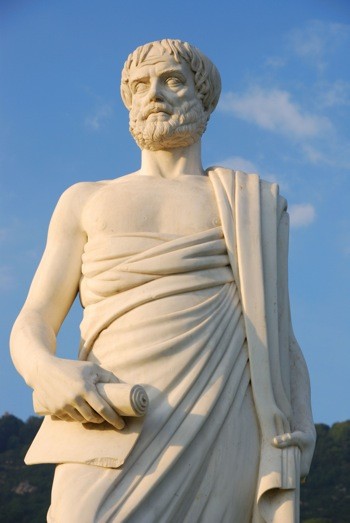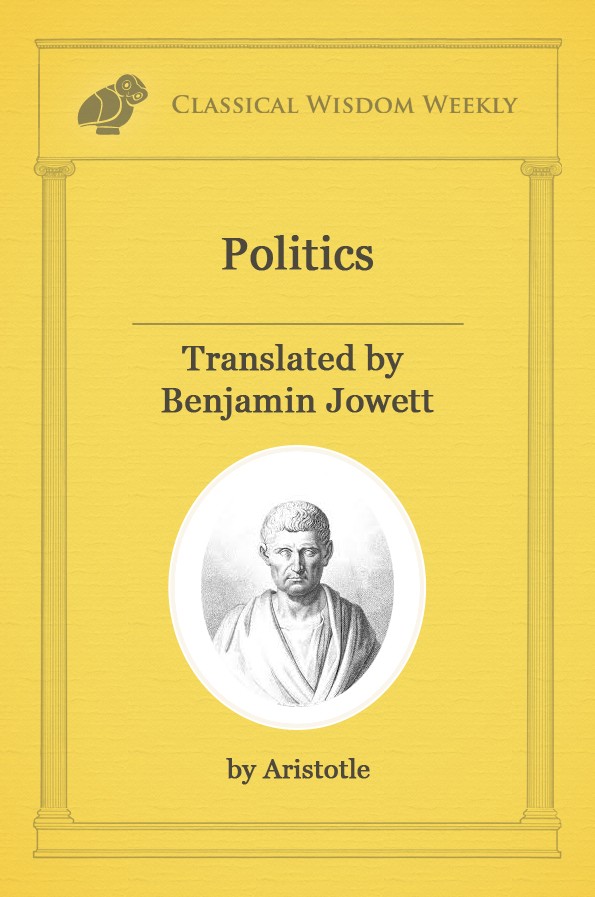By Van Bryan
Bertrand Russell once said that one quality that made Socrates a great philosopher was his ability to not become angered or annoyed even when his philosophical sparring partner was outright mocking him. And if we are judging good philosophers by that standard, then I am a terrible philosopher.

If you ever want to see me get slightly annoyed, discuss ethical philosophy with me and make a case for absolute ethical relativism. If you want to see me get outright angry and attempt to strangle you, justify your position with the statement “Well, that’s just my opinion”.
Such an incident actually did occur while I was studying at my university some years ago. A friend of mine put it to me that there was no truth behind the idea of Justice (with a capital “J”), there was no Wisdom (with a capital “W”), and that there was no such thing as Goodness (with a capital “G”).
When I asked him to support his position, he responded by saying “Well… that’s just what I believe.” And it was all I could do to not scream at hime for committing such a terrible sin against philosophy.
The problem with being a philosopher, you and me are philosophers by the way, is that we are not entitled to our opinions. We are only entitled to what we can argue for. And we must, no matter how difficult it may be, acknowledge when a position has become indefensible and abandon the belief altogether.
Oh sure, you can have your own opinion about what type of ice cream flavor is best or which New York bar has the best happy hour drinks (It’s Barbounia on 20th and Park). However, when it comes to discovering answers to rather important questions, like how to live the best life in our case, not all opinions are created equal.
That might be difficult for some of us to swallow, but there it is. Some beliefs are better than others.
Martha Nussbaum uses the example of thunder in her paper “Non-Relative Virtues: An Aristotelian Approach”. When examining thunder, we might wonder what it is that exactly causes it. One man might come forward and say that thunder is the result of the rapid expansion of 
air that occurs when lighting strikes. Another man might come forward and say that Zeus and his friends are up on Mount Olympus doing some bowling.
Now, while both explanations could account for observable phenomenon of thunder, one of them certainly seems more plausible. The second explanation, as cool as it sounds, is ultimately indefensible and must be discarded.
Another example is that if I were to have a toothache, I would probably go see a dentist. I would not, however, go to my favorite hot dog vendor and ask if he was interested in giving complex dental work a shot. You know, give it the old college try.
However, I digress. We are not talking about Zeus’ bowling habits or dental work or even hot dog vendors today. We are talking about the Aristotelean idea of non-relative virtues and the counter position which is referred to, by and large, as ethical relativism.
You see, my friend, the one whom I wanted to strangle, is what you might call an absolute ethical relativist. He holds the belief, despite my objections, that anybody’s idea of virtue is just as good as the next one. This means that the Aristotelean subject of non-relative virtues, the idea that there is an objective standard for good human behavior, is absolute nonsense.
It is worth noting that very few people are absolute ethical relativists. Many people are what we might call “cultural relativists”. This simply means that they believe every society holds different ideas of virtuous actions, and each of these ideas should be considered equal within the realm of ethical philosophy.
And this is where we often get into a bit of trouble. Ethical philosophers are often considered insensitive if they criticize a society’s practices, historical or otherwise. They are labeled as being ethnocentric, or culturally insensitive and, as a result, many people would prefer not to discuss the topic at all.
However, we must remember that even Aristotle, in his Politics, criticized his own culture and made notice of the ethical progress that the Greeks have undertaken over the centuries.
 “The customs of former times might be said to be too simple and barbaric. For Greeks used to go around armed with swords; and they used to buy wives from one another; and there are surely other ancient customs that are extremely stupid.” -Aristotle (Politics)
“The customs of former times might be said to be too simple and barbaric. For Greeks used to go around armed with swords; and they used to buy wives from one another; and there are surely other ancient customs that are extremely stupid.” -Aristotle (Politics)
And so we must not be afraid to recognize that ethical progress exists and that we as rational beings ought to, in Aristotle’s words,
“…not seek the way of our ancestors, but the way of the Good.” -Aristotle (Politics)
If we are to make a defense for non-relative virtue, as well as the broader Aristotelian ethical philosophy, against the more contemporary ideas of ethical relativism, we must find a way to establish a universality between all cultures when it comes to the subject of virtuous behavior and a good life. This is a task that Aristotle is more than willing to undertake.
It is within The Nicomachean Ethics that Aristotle lays out very plainly the various realms of human life that ALL people will inevitably have to deal with. Within these spheres we are given a choice, to act virtuously or basely. Aristotle lists the corresponding virtues that ought to be followed.
| Sphere |
Virtue |
| 1. Fear of danger, especially death |
Courage |
| 2. Bodily appetites and their pleasures |
Moderation |
| 3. Distribution of limited resources |
Justice |
| 4. Attitudes and actions regarding one’s self worth |
Greatness of Soul |
| 5. The planning of one’s life and conduct |
Practical Wisdom |
It is undeniable that every society, historical or otherwise, has had to deal with these various spheres of life and others. Every human being has or will have to face the prospect of death. Every person has an attitude towards the consumption of food and the experience of bodily pleasures. And it is undoubtedly true that every society has had to confront the reality of limited resources and respond accordingly.
“The point is that everyone makes some choices and acts somehow or other in these spheres: if not properly, then improperly.” -Martha Nussbaum (Non-Relative Virtues: An Aristotelian Approach)

Undoubtedly, people will disagree on exactly which actions within these various spheres makes a person virtuous or base. However, the Aristotelian has scored a small victory here. For if the relativist is arguing between which actions are best within these spheres, then they are no longer arguing for the nonexistence of objective virtue. Instead, we are grappling for a proper definition.
Just as we have progressed in the realm of scientific understanding, Aristotle tells us that we have similarly progressed in our understanding of ethical perfection. There was once a time in Greece when women were bought and sold as cattle. Aristotle points to this as a custom that was clearly stupid and base.
And so just as we prefer the heliocentric model of the solar system rather than believing that the earth is still flat as a means of conceptualizing the structure of the cosmos, so to must we recognize that the buying and selling of women is not a plausible action to arrive at human flourishing and ethical perfection.
From this we see that cultural traditions are not all viable options; that is to say that not all societal customs are equally plausible within the realm of ethical philosophy. Instead, we must recognize them as competing answers to the same question, the question of virtue.
And so we can conclude two things. The first is that not all behaviors within the spheres of life are equal, some are better than others. The second is that there most certainly is an absolute virtue that corresponds to the various spheres. We may not know precisely what it is, but we never stop trying to find it.
For this reason, Aristotle tells us that we ought to make it possible for laws to be changed when it is agreed upon by the people that a law is no longer corresponding with the idea of Goodness. However, the laws should not be so easily changed lest our legislation fall prey to impulsive opinions and prejudices of the populace.

The ethical relativist is correct, however, on one small point. There exists many customs across many different cultures. And while they vary greatly, there is no doubting that these customs all partake of the same virtues, whether it be bravery, justice, or hospitality.
If you were to visit a friend in London, you might be greeted with a pot of tea and biscuits. However, if you were to travel to ancient Athens and sit with friends, you would fall under the ancient cultural practice of Xenia, a ritualized system of hospitality between guest and host. You might be served wine and olives. Perhaps you would even be offered a bath and receive a gift.
Even though the two customs would appear to differ greatly, and the practice of them are separated by thousands of years, there is still an idea of hospitality that is adhered to. There is the idea of well wishing, of mutual respect and friendship. In short, both customs partake of the same virtue, a virtue that is universally understood.
I never was able to convince my old friend of the existence of non-relative virtue. It is possible that he is still out there somewhere, viewing mass murder and charitable donations as being equally acceptable actions.
I have never been able to condone, or even understand, such thinking. It may seem compassionate of us to allow everybody their own opinion of virtue, of ethical soundness. However, in doing so we deny them the chance to arrive closer to true morality, to true goodness. I believe Aristotle would agree.
Further Reading
 If you ever want to see me get slightly annoyed, discuss ethical philosophy with me and make a case for absolute ethical relativism. If you want to see me get outright angry and attempt to strangle you, justify your position with the statement “Well, that’s just my opinion”.
If you ever want to see me get slightly annoyed, discuss ethical philosophy with me and make a case for absolute ethical relativism. If you want to see me get outright angry and attempt to strangle you, justify your position with the statement “Well, that’s just my opinion”.
 “The customs of former times might be said to be too simple and barbaric. For Greeks used to go around armed with swords; and they used to buy wives from one another; and there are surely other ancient customs that are extremely stupid.” -Aristotle (Politics)
“The customs of former times might be said to be too simple and barbaric. For Greeks used to go around armed with swords; and they used to buy wives from one another; and there are surely other ancient customs that are extremely stupid.” -Aristotle (Politics)
 The ethical relativist is correct, however, on one small point. There exists many customs across many different cultures. And while they vary greatly, there is no doubting that these customs all partake of the same virtues, whether it be bravery, justice, or hospitality.
The ethical relativist is correct, however, on one small point. There exists many customs across many different cultures. And while they vary greatly, there is no doubting that these customs all partake of the same virtues, whether it be bravery, justice, or hospitality.








7 comments
What happened to generosity, friendliness, truthfulness, and wit? And why limit justice to “distribution of limited resources,” when Aristotle discusses one kind of justice in terms of fairness or equality and another, broader kind in terms of seeking mutual benefit or common goods in one’s interactions with others? You’ve given us a pretty thinned out Aristotle here.
As for your friend, some people are just thickheaded, but it might help to shift the focus of the discussion from notions of what is just or virtuous to notions of what is good for a person. If we think of “morality” in terms that sever it from what is good for people, then it is bound to begin to seem arbitrary or mysterious. If, instead, we first come to see that what is good for an individual human being is by no means a matter of whatever that person thinks is good for her or happens to want, then we might be better able to see that certain patterns of feeling and thinking – i.e., certain virtues – are objectively better than others and not at all merely relative to any individual or culture.
I don’t think this in any way negates relativism. It merely lacks a fundamental starting point. You neglect to state a point of origin whereby people can judge their ethics. The choice of this starting point is very important. Were one to choose intellectual achievement, one might come to very different conclusions as to the correct ethics than if one started with limiting suffering. And one would come to similarly different conclusions if one started out with the desire to please God.
The starting point, however, is not one which is subject to logical noncircular argument. Therefore ethics is relative between starting points, and nonrelative within systems what share a similar starting point.
I do rather appreciate the comments on this topic. I will admit that the argument for Aristotelian non-relative virtues is not as thorough as I would like it to be. I am often restricted by deadlines and a desire to be as concise as possible.
I think there is certainly a lot built into the argument that is never explicitly stated. The Aristotelian, as well as Platonic, ethical philosophy is virtue based. That is to say that an attainment of virtue will lead to the best life.
If we were to have a different understanding of how to achieve the best life, if we were Cyrenaic hedonists for instance, then the idea of virtue, non-relative or otherwise, never really enters into the realm of consideration because we are happy enough to drink wine and attend parties.
And so the idea that virtue based ethical philosophy as a plausible means to achieve a good life must be accepted before we even begin to consider the idea of non-relative virtue.
I also believe that there can be universal starting points for all people when considering ethical philosophy. Aristotle, detail-oriented like he was, lists these various spheres of human life and claims that they are not problems that must be dealt with by certain cultures, but rather by all people.
The idea of how we should treat other people, for instance, is something that everyone must deal with at some time. Between the two options of mass murder or treating people with respect and dignity, we might come to the conclusion that one is a much better choice than the other.
The criteria for which one is “better” is presumably the idea that one promotes human flourishing while the other does not.
Contrary to what you might think of my position, I would actually say that achieving limited suffering or pleasing God, or Gods in Aristotle’s case, are not terribly implausible explanations.
However, I would not argue that they are plausible by default, or just because someone says so or believes as much. Rather, they are plausible because they partake of certain virtues (compassion, self-worth, justice) and are therefore worthy participants for consideration. They partake of a certain goodness, a goodness that is also non-relative.
Ethics is highly difficult, if not impossible, because one tends to come to unwanted conclusions based on any starting point. If one is deciding between mass murder and treating people with dignity, one has to choose the starting point.
Say that the situation is one of survivable overpopulation. One might come to the conclusion that to limit suffering one should cull the population, whereas to obey God one should not kill. Or if one were starting at a less basic point of assumption, one might talk about not violating human rights or not committing genocide.
In another example if one starts with pleasing God, one might believe (since if God can be pleased perhaps God can be displeased), that there is a Hell.
Now, given an uncooperative population, one might consider slaughtering a few of them and enslaving the rest, so as to motivate the rest of them to take steps to avoid Hell.
The most universal basic principle that I know of which one could start with, is limiting suffering and maximizing all sorts of pleasure (including meaning and intellect). But this also as I said leads to consequences that one might not like.
So while we may by fiat choose to say that one ethical system is better than another, and choose to structure society on that basis, I have never found an ethical position which is not deeply flawed, nor one which is not relative.
You’re right that there are universal starting points of consideration, like how we should treat people, but there aren’t universal starting points such that we can come to universal conclusions. Nor are there unproblematic starting points for ethics.
So basically I think we agree, because you say
“And so the idea that virtue based ethical philosophy as a plausible means to achieve a good life must be accepted before we even begin to consider the idea of non-relative virtue.”
which is to say that ethics are indeed relative- you choose your starting point. But that’s something very different from where you seemed to begin.
Hmmmmm I do rather like your arguments. And I will agree that ethics is certainly not easy, but perhaps that is what makes it so appealing.
I think I do understand your argument about finding a good starting point, a place to begin. Should the ultimate goal be to please God? Should we try to limit suffering? Should we just do what is best for us and get lots and lots of money? These are the types of starting points that you might have been referring to. And from here we can judge our actions as either ethical or unethical with the idea of where we want to eventually end up.
When I said that we first had to accept that virtue based ethics as a way to live well, what I should have said is that we OUGHT to accept it. At least that is the popular opinion amongst the Greeks.
I might be straying a bit here, but I believe Aristotle makes the claim that our end goal, as individual human beings, is that we ought to be happy. HOWEVER, we must attempt to attain the appropriate happiness from the appropriate pleasures, given our status as logical beings.
I believe the end of that story is that we become truly happy when we are virtuous, particularly when we attempt to pursue wisdom.
Things become significantly more difficult when we actually try to apply these ideas to the real world, particularly when we consider ethics within a society rather than just an individual.
And I do concede that particular circumstances muddy the waters even further. I especially like your example of mass murder as a means to reduce suffering within a population. It reminds me of the whole Deontology vs. Utilitarianism discussion.
Sticking with Aristotle though, I would argue that the Aristotelian idea non-relative virtues is not something that we must abandon whenever confronted with a difficult decision. Much like a road map, they are a general outline of generally good decisions. However, we must always be sure to balance general rules with a keen awareness of particulars, the perceptions of the particulars take priority.
I guess what I’m saying is that I don’t believe Aristotle meant to give us commandments that we must live by and that admit no exceptions. Rather, I think he meant to attain a general idea of living well and living ethically, and he did this through stressing that we continuously attempt to understand the different types of virtues within the various spheres of life.
Well by that definition I would definitely be at one with Aristotelian ethics. I had that in class, and had forgotten the starting point of “happiness.”
Apparently, looking it up Aristotle was an essentialist, which is more or less what I would be… I think people have a particular makeup which is usually quite similar between individuals, and and one can -and should- base ethics on this nature. But this isn’t the same as believing in Forms, either, and therefore would probably be more fungible in practice.
Anyway people who would be completely relativist and do not choose any basis for ethics have to ignore the makeup of human beings, and they have to deny human rights. They are by nearly every modern definition immoral so one should go ahead and shout at them (:
Happiness is a much better way of putting it than the pain/pleasure principle, because when I use the latter I’m talking about pleasure in the broadest sense, happiness on all levels.
Nevertheless this is a form of relativism, especially considered in the light of a possible transhuman future, wherein our pains and pleasures may be radically different. But the form of relativism we share is strict and logical and goal oriented, and not as with those you’re calling relativists, flabby and prone to outcomes which, not doubt, they would not like to experience themselves.
Also I’m guessing Aristotle would have argued that even if nearly all that makes us human is left behind, we would retain intellect, and that this is a high virtue. It might be hard to get from there to being virtuous in other ways though… but I’m beyond my range here, I’d have to study up on the history and arguments.
Cheers (:
I like your post.
A small typo: “There exists many customs” should be “there exist many customs.”
Our apologies, you must be logged in to post a comment.